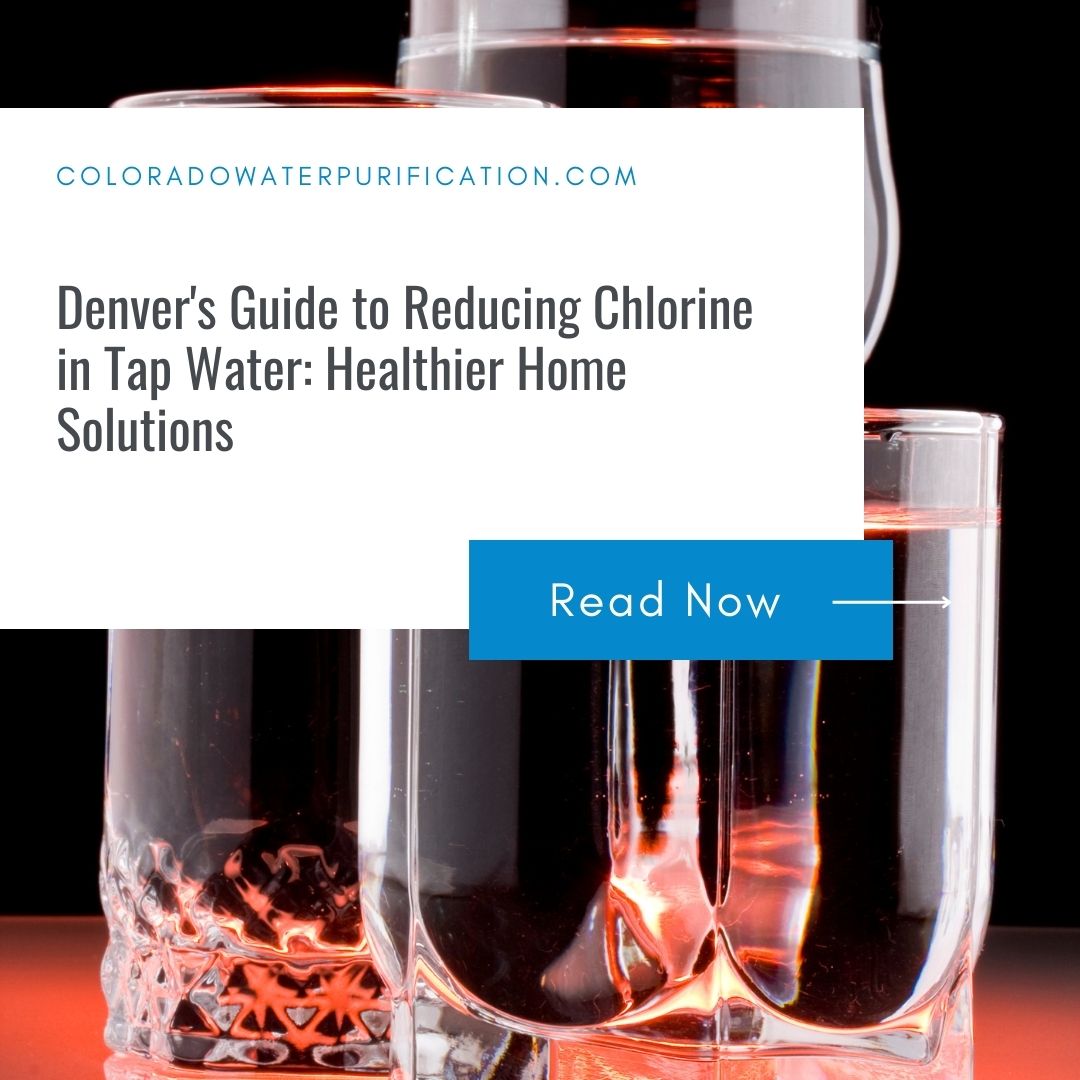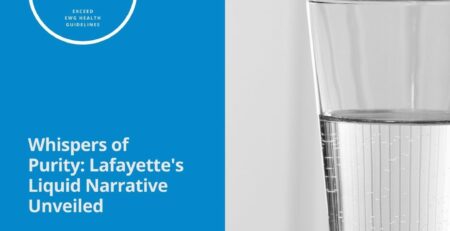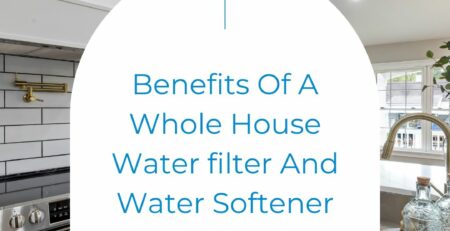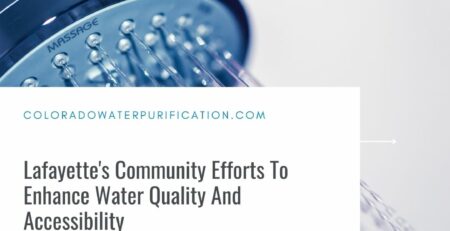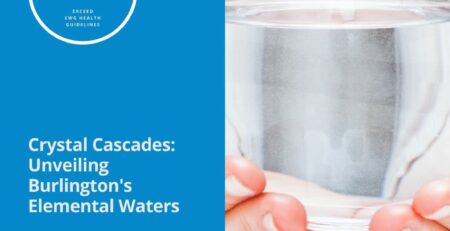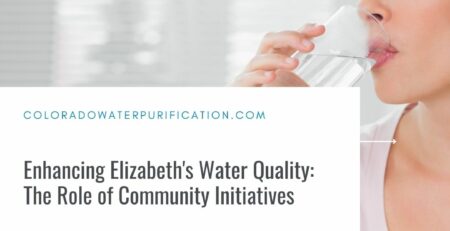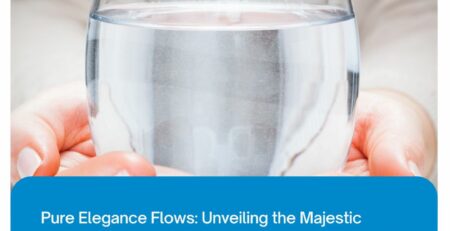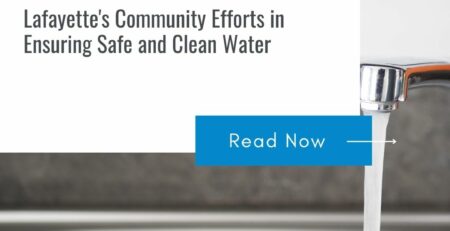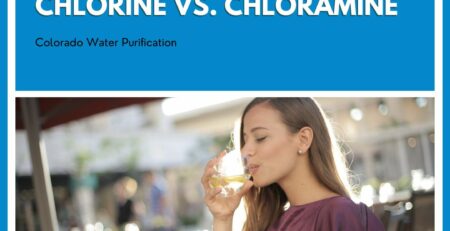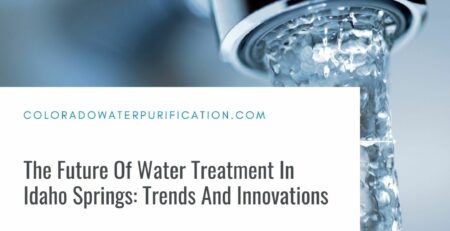Denver’s Guide to Reducing Chlorine in Tap Water: Healthier Home Solutions
Welcome Denver home owners to our comprehensive guide on reducing chlorine in tap water. As residents of the Mile High City, we are fortunate to have access to clean drinking water that has been treated with chlorine for disinfection purposes. While this measure is essential for preventing many diseases, it can also have negative effects on our health and homes. In this blog post, we will explore why you may want to reduce your exposure to chlorine in tap water and provide practical tips and solutions for creating a healthier home environment. So grab a glass of filtered water and let’s get started!
Introduction to the issue of chlorine in tap water and its potential health effects
Water is one of the most essential elements for sustaining life, and access to clean water is an important factor for maintaining good health. However, the introduction of chlorine into our tap water has been a topic of heated debate for years, with some arguing that it poses a threat to our health. While chlorine has been effective in disinfecting water and reducing the spread of waterborne illnesses, concerns have been raised about its potential health effects. Some studies have linked exposure to high levels of chlorine in drinking water to an increased risk of certain cancers, birth defects, and other health issues. As such, it’s important to be aware of the potential risks associated with chlorine in our tap water, and to take steps to ensure safe and healthy water sources.
Explaining the levels of chlorine in Denver’s tap water and how it compares to other cities
When it comes to tap water, one concern many people have is the levels of chlorine. In Denver, the tap water does contain chlorine, but the levels are actually on the lower end compared to other cities across the United States. While it’s important to ensure that the water is safe to drink, it’s understandable to want to minimize the amount of chemicals in our drinking water. Fortunately, Denver’s water treatment facility has found a balance between safety and reducing the amount of chlorine used. It’s always a good idea to stay informed about the quality of our tap water, and knowing how it compares to other cities can give us peace of mind.
The importance of reducing chlorine in your home for a healthier living environment
Chlorine, a chemical commonly used in tap water and cleaning products, can have negative effects on both our health and the environment. By reducing the amount of chlorine in our homes, we can create a healthier living environment and decrease our risk of exposure to harmful chemicals. Thankfully, there are many alternatives to chlorine, such as natural cleaning products and water filtration systems. Taking small steps towards reducing the amount of chlorine in our homes can have a big impact on our overall well-being and the health of our planet. Let’s prioritize the health of our homes and ourselves by taking action to reduce chlorine use.
Cost-effective ways to filter chlorine from your tap water, such as using a pitcher filter or faucet attachment
Every day, we rely on tap water to keep ourselves hydrated and nourished. Unfortunately, the chlorine used to disinfect tap water can have an unpleasant taste and odor, making it less pleasant to drink. Luckily, there are simple and cost-effective solutions that can help filter out chlorine from tap water. One such solution is using a pitcher filter, which can remove chlorine and other contaminants from your water. Another option is a faucet attachment, which is easy to install and can filter out chlorine while you are filling up your glass or bottle. By investing in one of these filter options, you can enjoy fresh-tasting water at a fraction of the cost of buying bottled water.
Installing a whole house water filtration system as a long-term solution
When it comes to ensuring clean and safe water for your entire household, a whole house water filtration system is an excellent long-term solution. Unlike point-of-use filters (such as those attached to individual faucets), a whole house system filters water before it enters your home’s plumbing. This means that every tap, showerhead, and appliance that uses water will receive filtered water. A whole house system can remove a wide range of contaminants, such as sediment, chlorine, and heavy metals, giving you peace of mind that your family is consuming and using the purest water possible. Plus, with regular maintenance, a whole house system can last for several years, providing you with a cost-effective and hassle-free solution to your home’s water needs.
Alternative options for drinking water, including bottled or distilled water
Water is the most essential element for human survival, making up 60% of our bodies. In today’s world, we are fortunate to have alternative options for drinking water besides tap water. Two popular options are bottled and distilled water. Bottled water comes in convenient packaging and is often marketed as a healthier option, while distilled water is purified through a process that removes all minerals and impurities. Both options have their benefits, but also come with a cost. It’s up to each individual to weigh their personal needs and preferences to determine the best option for them. No matter the choice, staying hydrated with clean water is crucial for a healthy life.
Tips for cooking with chlorine-free water to improve the taste of food and beverages
Cooking with chlorine-free water is an excellent way to enhance the flavor of your food and beverages. Water treated with chlorine can often leave an unpleasant taste in your mouth, affecting the overall quality of your dishes. By switching to chlorine-free water, you can enjoy a more natural and clean taste that allows the flavors of your ingredients to truly shine through. To take things a step further, consider investing in a high-quality water filtration system that removes more impurities than a basic water filter. Whether you’re making a cup of coffee, cooking pasta, or whipping up a batch of soup, using chlorine-free water is an easy and effective way to elevate your culinary creations.
How reducing chlorine can benefit your skin and hair health
Are you tired of dealing with dry, itchy skin and lackluster hair? The culprit could be in your shower. Chlorine is a common component in many water systems, but it can wreak havoc on your hair and skin. The good news is that reducing the levels of chlorine can lead to major benefits. Without the harsh chemical, your skin can retain moisture better, leaving it feeling softer and smoother. And your tresses can also reap the rewards of lower chlorine levels. With less exposure, you may notice less breakage and more shine. So if you want to improve your hair and skin health, it may be time to invest in a water filtration system or other methods to reduce the amount of chlorine in your shower water.
Other benefits of reducing chlorine, such as protecting plumbing and appliances from damage
When we think about reducing chlorine in our water, we typically focus on the benefits to our health and the environment. But did you know that reducing chlorine can also protect your plumbing and appliances from damage? It’s true! Chlorine can be harsh on pipes and fixtures over time, causing corrosion and wear. By reducing the amount of chlorine in your water, you can help extend the life of your plumbing and appliances. Plus, you’ll save money in the long run by avoiding costly repairs and replacements. So, if you haven’t already considered the benefits of reducing chlorine, it’s time to take a closer look!
Conclusion highlighting the various options available for Denver residents to reduce their exposure to chlorine in tap water
Concerns about chlorine in tap water are growing across the country, and Denver is no exception. Fortunately, there are several options available for residents who want to reduce their exposure to this chemical. One option is to invest in a high-quality water filtration system, which can remove chlorine and other contaminants from your tap water. Another option is to switch to bottled water or use a water delivery service that offers chlorine-free options. Additionally, you can try filling a pitcher with tap water and letting it sit out for at least an hour to allow the chlorine to evaporate. Whatever option you choose, it is important to prioritize your health and wellbeing by taking steps to reduce your exposure to this potentially harmful chemical.
As we come to the end of this blog post, it is clear that while chlorine in tap water may have its benefits, it also comes with potential health risks. The levels of chlorine in Denver’s tap water are higher than many other cities around the country, which is why it is crucial for residents to take action and reduce their exposure to this chemical. This can be done through cost-effective methods such as using a pitcher filter or faucet attachment, or investing in a whole house filtration system for long-term benefits. Additionally, considering alternatives like bottled or distilled water can also provide a safe option for drinking. But it’s not just about our drinking water – reducing chlorine has many other benefits that affect our daily lives from protecting our plumbing and appliances to improving the taste of our food and beverages. Plus, who doesn’t want healthier skin and hair? Overall, there are various options available for Denver residents to make a positive change and prioritize their health by reducing chlorine in tap water. So let’s take action today and create a healthier living environment for ourselves and our loved ones – after all, we deserve nothing less!

